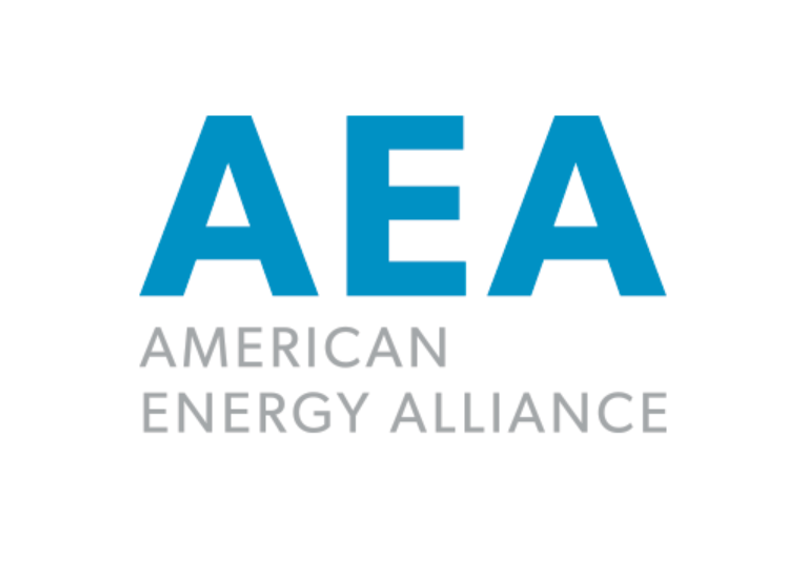Alliance of British Drivers
Category: Motoring Pressure Group
The Alliance of British Drivers (ABD) is a voluntary motoring pressure group “owned and controlled by its members”, who it describes as “representative of the mass of road users in the UK”.
The ABD has frequently cast doubt on the health impacts of air pollution and rejected the scientific consensus on climate change. It opposes emissions charging zones, designed to improve air quality, and has called for the removal of government support for electric vehicles.
The ABD has also been a vocal opponent of low traffic neighbourhoods (LTNs) and other traffic reduction and active travel measures introduced by the government in response to the COVID-19 pandemic.
According to its website, the group aims to “counter the misinformation spread by many people on the use of private vehicles” and “promote freedom of choice about how you travel”.
The group’s patrons previously included DUP MP Sammy Wilson, former UKIP MEPs Godfrey Bloom and Jill Seymour, and Conservative MPs Karl McCartney and David Morris.
The ABD has been a vocal opponent of road pricing and congestion charges. It argues that the “consent of the British people has never been sought for these schemes” and that they are “justified on erroneous environmental grounds”.
It believes that policies at national and local levels have “discriminated against drivers by means of misleading information, obstruction, restriction, delay and taxation”.
It also opposes many road safety measures, such as speed cameras, claiming that there is “no hard scientific evidence for any benefit”. It belongs to the Parliamentary Advisory Council for Transport Safety.
The ABD says that private cars and motorcycles are the “most flexible” and “most cost effective” mode of transport and has alleged that those who “wish to stop you using them often have vested interests in public transport or otherwise wish to curtail your freedom”.
The ABD was formed in 1992 under the name Association of British Drivers, before merging with the Drivers Alliance, according to its website.
A 2004 Guardian investigation found that the group misleadingly claimed it had as many as 9,000 members. It also reported that one of its affiliated organisations wrongly claimed that “seatbelts kill more motorists than they save by trapping them in cars when they plunge into lakes and rivers”.
The group caused controversy in 2019 when its official Twitter account claimed that people were safer driving at high speeds because they were more alert, in an “expletive-laden response” to a pro-cycling advocate.
The group’s Twitter account again drew criticism in May 2020 for echoing far-right conspiracy theories when it said that the UN, World Health Organisation and World Bank had been “captured by One World Global Marxist sympathisers” aiming to “gradually pauperise and depopulate the West”. The tweet was quickly deleted.
Funding
Registered under the company name “Pro-Motor”, the ABD had net assets of £19,000 as of March 2019, according to its annual report.
Speaking to DeSmog, an ABD spokesperson said it did not receive funding from “any outside bodies, unlike our opponents”.
Air Pollution Lobbying
The ABD has frequently denied or downplayed the environmental impacts of fossil fuel-powered cars, with a 2004 Guardian article reporting that the ABD disputed both anthropogenic climate change and the harm of exhaust emissions at the time.
The ABD currently claims on its website that medical experts have said there is “no evidence” that nitrogen dioxide (NO2) is “harmful to public health” because if it was “there would be a health warning on gas cookers”.
It has also claimed that UK efforts to reduce greenhouse gas emissions would have “negligible impact” globally and said “many people do not accept” that CO2 is a major cause of climate change.
Elsewhere, it has said it is “unclear whether NOx actually has any negative health impacts” and dismissed a paper published in the Lancet medical journal linking childhood asthma to air pollution as “epidemiological guesswork” and “bad science”.
The ABD states on its website that “road transport is being attacked on environmental grounds”. It claims that “air pollution from private cars has been falling substantially and technology is going to make matters even better over the next few years”.
It says transport emissions are “only a fraction of total air pollutants, and those from private cars an even smaller factor”. It argues that “unreasonable and unnecessary attacks on car usage will not solve any environmental problems”.
Clean Air Zones
The group strongly opposes emissions charging zones, with its Air Quality Campaign Manager Paul Hemingway claiming that limits on diesel cars introduced by some German cities were done “for no good reason”. A former director of the group, Hemingway has worked as a manager at car companies throughout his career.
In an article for the TransportXtra website, Paul Biggs, one of the group’s directors, wrote that the problem of air pollution was being exaggerated and “used to justify more taxes on some drivers in the guise of clean air zones (CAZ)”. He previously called a King’s College London (KCL) study on the issue “junk statistics derived from junk epidemiology” and claimed the link between air pollution and increased risk of heart attacks had been “debunked”.
Speaking to DeSmog, Biggs accused KCL of being “linked with campaign groups” and “therefore heavily involved with advocacy”.
The ABD has stated that plans to introduce Clean Air Zones in cities such as Birmingham are based on the “same flawed arguments” as in Germany and said emissions charging schemes “simply aren’t cost effective” at reducing air pollution.
Elsewhere, it says motorists should be able to “use the roads in a safe and responsible manner without being subject to unreasonable charges, restrictions or penalties”.
Instead, it argues wood burning stoves should be targeted, claiming that “one log-burning stove in a smokeless zone can produce more PM2.5 than 1000 petrol cars”.
The ABD’s Paul Biggs told DeSmog he was “one of the first, if not the first, in the UK to point out the folly of wood burning stoves being exempted” from clean air legislation in 2012.
He argued that “indoor air can be many times worse than outdoor air” and said there was a “biased focus on vehicle emissions, which are already well regulated via emission standards and engine technology”.
Low Traffic Neighbourhoods
The ABD has been a vocal opponent of low traffic neighbourhoods (LTNs) and other traffic reduction measures.
In a February 2021 appearance on talkRADIO, ABD spokesperson Paul Biggs spoke with host Mike Graham about a range of topics including government road spending, climate change, and LTNs. Regarding LTNs, Biggs said: “The environmentalists haven’t worried about local traffic – low traffic neighbourhoods, where they’ve actually increased congestion and therefore increased pollution. It took the taxi drivers to take the government to court, to take London to court over that”.
Referring to the roll-out of LTNs and the government’s decision in June 2019 to implement a legally-binding net-zero emissions target, Biggs said: “The big problem here is that everything bypasses democracy, there’s no proper democratic process to any of this”, adding that there had been “no proper debate” and “no proper costing” in either case.
After the schemes were initially encouraged during the pandemic, the ABD published a number of posts about LTNs on its website. In an article titled “Are there any benefits from Low Traffic Neighbourhoods (LTNs)?” the ABD claimed that “there is no evidence that Low Traffic Neighbourhoods produce any significant benefits while there is clear evidence that they delay emergency service vehicles”.
In another blog post, the ABD commented on articles from The Telegraph detailing opposition to LTNs. The ABD claimed that “air pollution increased on main roads where traffic congestion increased, often grinding to a halt during rush hours” and that “there were also problems with access by emergency services to the LTNs”.
Regarding a claim by Nigel Farage that the Reform Party (formerly the Brexit Party) would “stand candidates against any and every local councillor who backs these new cycle lanes and road closures in next year’s local elections”, the ABD said the party could gain supporters in “Labour controlled London boroughs” where LTNs were “deeply unpopular”. The ABD also said that similar boroughs were previously “good targets for the Brexit Party” because “the concerns of many working-class voters have been ignored by the new socialist elite”.
In the same blog post, the ABD reiterated the claim that LTNs and other road closure measures delay emergency vehicles.
In a December 2020 press release responding to a legal ruling by the assistant coroner for Inner South London that illegal levels of air pollution contributed to the premature death of nine-year-old Ella Kissi-Debra, the ABD said that “the verdict should not be used to curtail vehicle use via punitive taxation, road space reallocation or road blocks known as Low Traffic Neighbourhoods (LTNs), which increase congestion and therefore vehicle emissions”.
According to the local news blog Inside Croydon, in November 2020 ABD campaign manager Roger Lawson made a £200 donation to help fund a legal challenge to an LTN in Croydon. That month, Open Our Roads filed High Court legal papers for a judicial review of the LTN against Croydon council.
Lawson’s donation was later removed from the page, and when asked by Inside Croydon why the donation was removed, Eliska Finlay, founder of the Open Our Roads campaign, refused to comment.
In November 2020, the ABD and Fair Fuel UK, the Road Haulage Association (RHA), and the APPG for Fair Fuel for UK Motorists and Hauliers wrote a letter to Transport Secretary Grant Shapps calling on him to halt and roll back green transport measures – including LTNs – that had been introduced in response to the COVID-19 pandemic.
The letter, also co-signed by twelve Conservative MPs unconnected to the APPG, said: “UK’s 37m drivers, the millions of constituents across the country are feeling victimised by draconian charges and road restrictions initiated by local authorities and funded it seems, by the Department of Transport. The anger out there is palpable”.
Regarding the letter, ABD founder and signatory Brian Gregory said: “Motorised road users have of late been subjected to substantial urban road capacity cuts through lane narrowings and closures implemented under the manifestly false justifications of Covid-19 and sparking economic recovery”.
In September 2020, the ABD was reported to be seeking legal advice on “whether councils were within their rights to alter [their] roads” in response to the COVID-19 pandemic. ABD spokesperson Hugh Bladon said that the low traffic schemes had been “rushed through”, had created “pinch points, congestion and unwanted one way systems”, and that “new cycle routes have cut road width causing more problems for motorists”.
Electric and Hybrid Cars
The ABD strongly criticised the government’s plans for a 2035 ban on the sale of new petrol, diesel and hybrid cars, which it called an “over-reaction to the views of the extreme end of the environmental movement”.
It said the move would “threaten the very existence of the motor manufacturing industry” and argued that hybrids, which have been criticised by environmental campaigners as unnecessary, were a “good compromise solution”.
It also claimed there was “no certainty” that electric vehicles would be able to provide sufficient mileage range by this time, as well as arguing that the expansion of charging points and the electricity grid in general would “impose enormous costs on drivers and the economy”.
Despite saying it had “no gripe about encouraging the use of electric cars”, in 2017 it asked the Chancellor to cut the subsidy for new electric cars and said EV drivers should pay vehicle excise duty, though at a lower rate than for petrol and diesel cars.
Key Arguments in Order of Prominence
- The effects of air pollution on health are doubtful or have been exaggerated
- CAZs are simply a way to raise taxes and balance local authority budgets
- The damage caused to the economy by CAZs outweigh the health benefits
- Vehicle emissions have already declined significantly and will continue to do so
- CAZs are regressive, hitting low-income and other vulnerable communities hardest
- Road transport only contributes a small proportion of overall emissions
- Diesel cars aren’t as harmful as is claimed
- Other pollution sources, like wood burning stoves, should be targeted instead
- CAZs are a means of exerting control over populations
- Outdoor air quality is better than inside homes
Areas Active
Bath: the ABD wrote a joint letter to the council opposing plans for a CAZ with the Road Haulage Association, the anti-fuel duty campaign group FairFuel UK, and the TaxPayers’ Alliance. The letter argued a CAZ could cause a decline in tourism and increase costs for taxis, coach companies and hauliers, leading to job losses and businesses “going bust”. It also stated that CAZs had been “shown to be ineffective, economically damaging and regressive” and suggested a tram system could be a better solution to tackling air pollution.
Birmingham: Paul Biggs, the group’s West Midlands spokesman, has said that “eco-austerity policies” like the city’s planned Clean Air Zone are “unashamedly aimed at the totalitarian control of every aspect of our lives without having any positive effect on weather, climate, the level of atmospheric carbon dioxide, or life expectancy”.
In response to a consultation by the West Midlands Combined Authority, the ABD said there is “nothing wrong with Britain’s air quality” and claims “outdoor air quality is better than what is found inside people’s homes”. It says the “so called science used to justify these zones is not proper science, but statistical manipulation performed by the tame academics of those lobbying against the car”.
In 2019, it launched an “Against Birmingham’s Clean Air Zone” campaign.
Bristol: the ABD criticised a proposed ban on diesel cars in the city centre, citing tests carried out by the German automobile association ADAC that found “some diesel cars tested were cleaner than the equivalent petrol models”. It also claimed CAZs “take at least an order of magnitude more in revenue out of local economies than even the claimed value of benefits” and dismissed research on the health impacts of air pollution.
A representative of the ABD reportedly attended an “action day” against a proposed workplace parking levy in the city in 2012, designed to reduce car use. The event was organised by the free-market TaxPayers’ Alliance and attended by representatives from the Federation of Small Businesses and the Freedom Association.
Kent: Terry Hudson, one of the group’s directors, called plans for a “car-free day” in Canterbury “gesture politics at its worst”, describing organisers as “Luddites”.
London: the ABD’s Brian Macdowall was quoted in the Daily Express claiming the city’s Ultra Low Emission Zone would see a “big cost to drivers”, hitting the lowest earners hardest and calling the scheme “unnecessary”. He said disabled drivers, who will be exempt from the charge until 2025, the elderly and the “white van man” would be most affected by it.
The group has also claimed the ULEZ is a “giant con to raise more taxes to fix the Mayor’s budget problems” and urged its supporters to respond to the public consultation.
The ABD’s London branch runs a number of campaigns against measures to reduce car traffic and speeds, including Lewisham’s “Healthy Neighbourhoods” initiative and Croydon’s plans to introduce 20mph speed limits across much of the borough.
The branch has also claimed that “diesel and petrol cars contribute only 12% and 6% respectively of all emissions in London” and that there are “many other sources” such as cooking and wood burning stoves.
The London branch of the ABD posted on its blog in February 2021 about why low traffic neighbourhoods are “failing” and “deserve to do so”, arguing that LTNs have had “unintended consequences” and disadvantage the elderly and disabled in particular. The post also argues that “producing vehicles that produce less pollution”, reducing London’s population, and expanding and improving the existing road network are more “realistic ideas” for reducing traffic and air pollution in London. The blog, formerly called ABDLondon, has since rebranded as a blog for the Freedom for Drivers Foundation, which states that its website “previously promoted the Alliance of British Drivers (ABD)” but is “no longer associated with that organisation”.
Throughout March and April 2021, the Greater London branch of the ABD retweeted content from anti-LTN campaigners and groups including One groups and anti-LTN candidates for the 2021 London Mayoral race, including Reclaim candidate Laurence Fox and independent candidate Farah London.
Sussex: the Sussex branch of the ABD has been vocal on Twitter opposing LTNs, providing its own commentary as well as retweeting other anti-LTN groups and campaigners. On January 18, 2021, the branch tweeted: “Definition of hypocrite: Sombody [sic] who votes for an LTN outside their house but continues to drive past other people’s houses.” On March 9 2021, the branch tweeted: “Some ask why we tweet about LTNs in London. A. Many Sussex residents have to drive in London. B. Don’t ever think this nonsense won’t spread to other cities and towns.” The branch also frequently retweets content from the UK’s premier climate denial group, the Global Warming Policy Foundation (GWPF).
Key Actions
July 2021
In response to a tweet from Nigel Farage asking “Why not just plant lots of trees?” instead of implementing “green taxes”, the ABD tweeted:
“Because planting trees & letting Nature do its stuff doesn’t allow eco-totalitarians free rein to push us all around, Nige. They prattle on, even though water vapour is far & away the most abundant & potent global warming gas & there’s NO “climate crisis””.
The ABD then linked to a blog post by William Happer, a US physicist and member of the academic advisory board of the Global Warming Policy Foundation, claiming that “there is no climate crisis” and that “climate frenzy is really heating up”.
December 2020
In a press release responding to a historic legal ruling by the inner South London coroner that illegal levels of air pollution contributed to the premature death of nine-year-old Ella Kissi-Debra, the ABD said:
“The verdict should not be used to curtail vehicle use via punitive taxation, road space reallocation or road blocks known as Low Traffic Neighbourhoods (LTNs), which increase congestion and therefore vehicle emissions. Ella’s mother Ms Rosamund Kissi-Debrah has described the Lee Green LTN in Lewisham as ‘insane’. We promote the use of engine technology to further reduce vehicle emissions, including fuel additives, which the government is ignoring”.
November 2020
The ABD, alongside the APPG for Fair Fuel for UK Motorists and Hauliers, the RHA, and Fair Fuel UK, wrote a letter to Secretary of State for Transport Grant Shapps calling for him to halt the roll-out of low traffic measures designed to promote active travel during the COVID-19 pandemic and the planned expansion of London’s Congestion Charge Zone to the North and South Circulars.
September 2019
The ABD published a revised version of a report entitled “Air Quality and Vehicles – The Truth”, in which it claims that “there is no public health crisis” as a result of air pollution.
July 27, 2017
Brian Macdowall, a director of the ABD, wrote an article for the ConservativeHome website in which he criticised proposals to improve air quality in London by Mayor Sadiq Khan as “repressive”. He said the move was “sheer hypocrisy when you realise that he lays on large firework displays such as for New Year (repeatedly!) and promotes them at the Thames Festival”.
Associated Politicians
The group’s patrons previously included DUP MP Sammy Wilson, former UKIP MEPs Godfrey Bloom and Jill Seymour, and Conservative MPs Karl McCartney and David Morris.
An ABD spokesperson told DeSmog that despite Bloom not being “a member or a patron”, he continued to claim to represent the ABD in radio interviews.
Related Organisations
Social Media
- @TheABD on Twitter.
- The Alliance of British Drivers on Facebook.






